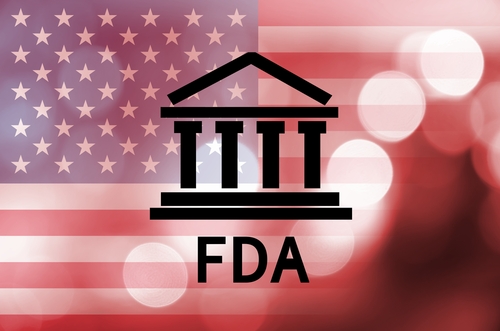FDA Asked to Approve Diroximel Fumarate as Oral Treatment for Relapsing MS

Alkermes filed a request for the approval of diroximel fumarate (BIIB098) to treat relapsing forms of multiple sclerosis (MS) with the U.S. Food and Drug Administration (FDA).
If approved, diroximel fumarate will be marketed by Biogen in the U.S., likely under the brand name Vumerity. Alkermes and Biogen are working together in developing the treatment.
The submitted new drug application (NDA) was supported by clinical data from the pivotal Phase 3 trial EVOLVE-1 (NCT02634307) that demonstrated the long-term safety and efficacy of diroximel fumarate in patients with relapsing-remitting MS (RRMS).
Diroximel fumarate, also known as ALKS 8700, is an orally available compound that upon administration is rapidly converted into monomethyl fumarate (MMF). Although how it works is not fully understood, this active molecule is believed to have fewer gastrointestinal side effects than dimethyl fumarate (marketed as Tecfidera by Biogen), an FDA-approved oral therapy for relapsing MS.
The immunomodulatory nature and anti-oxidant properties of diroximel fumarate, like Tecfidera, are expected to help prevent the degeneration of the myelin sheath that protects nerve fibers seen in MS patients, without leading to systemic immune suppression.
“Diroximel fumarate was designed to provide patients with relapsing forms of multiple sclerosis a novel oral fumarate with a differentiated profile,” Craig Hopkinson, chief medical officer and senior vice president of medicines development and medical affairs at Alkermes, said in a press release.
“The data encompassed in the regulatory package underscore diroximel fumarate’s potential to be a meaningful, new treatment option for the MS community. This NDA submission is an important step in our collaboration with Biogen for diroximel fumarate, and we look forward to working together to bring this potential new medicine to patients and healthcare providers,” Hopkinson added.
EVOLVE-1, an open-label study being conducted at 108 U.S. and European clinical sites, is continuing to assess the impact of diroximel fumarate given twice daily to about 930 RRMS patients.
Data collected after one year of treatment showed a decline to 0.16 in the annualized relapse rates of 570 patients. Interim data from brain magnetic resolution imaging (MRI) scans also revealed that the patients had significantly less active brain lesions compared to their pretreatment status.
A previous analysis found diroximel fumarate to be generally safe and well-tolerated, with patients having a low incidence of gastrointestinal reactions and without reports of serious events. Most common side effects associated with the treatment included flushing (redness of the skin, normally in the neck and cheeks), itchy skin, and diarrhea.
Alkermes is currently recruiting RRMS patients for the five-week EVOLVE-2 trial (NCT03093324), taking place across the U.S. and in Poland. A toxicity study, it will directly compare the gastrointestinal effects of oral diroximel fumarate with oral Tecfidera, both given twice a day. For more information, visit the trial page using this link.
“The filing of diroximel fumarate by our partners at Alkermes demonstrates our enduring commitment to people living with MS,” said Michael Ehlers, executive vice president of research and development at Biogen. “[W]hile there are a number of approved therapies available today, continued treatment advances remain an important priority.”






